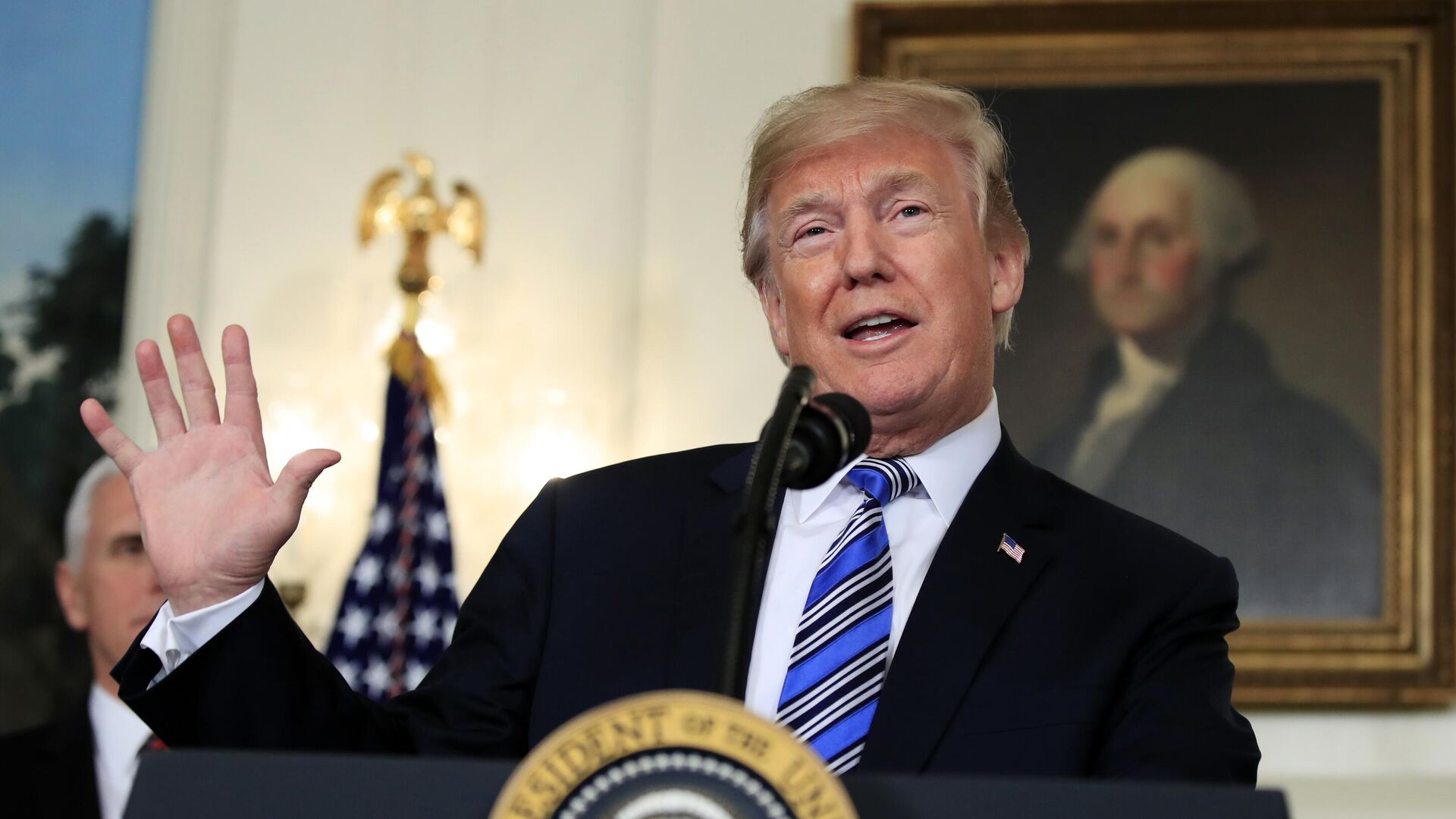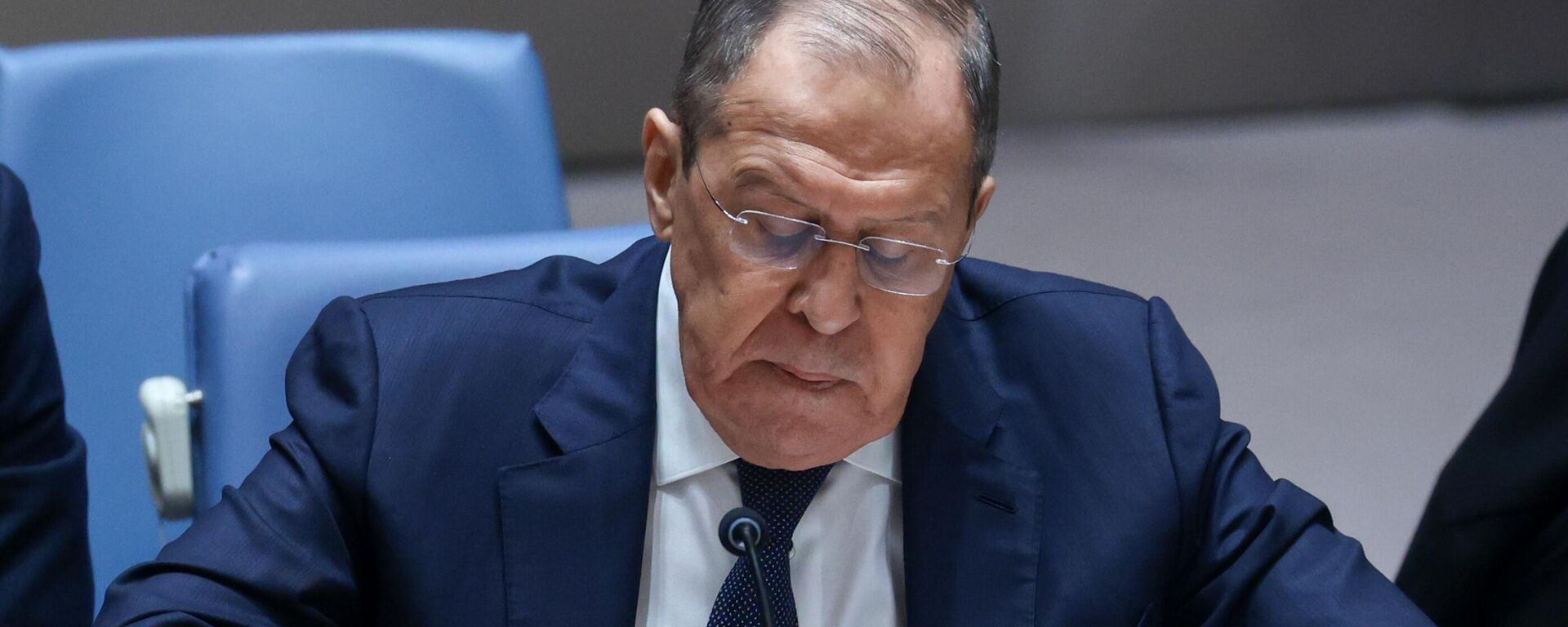https://en.sputniknews.africa/20250103/trump-administration-may-soften-stance-on-russia-in-bid-to-contain-china-expert-believes-1070003440.html
Trump Administration May Soften Stance on Russia in Bid to Contain China, Expert Believes
Trump Administration May Soften Stance on Russia in Bid to Contain China, Expert Believes
Sputnik Africa
WASHINGTON (Sputnik), Kirill Krasilnikov - US President-elect Donald Trump's administration is likely to prioritize efforts to contain China, easing its... 03.01.2025, Sputnik Africa
2025-01-03T08:17+0100
2025-01-03T08:17+0100
2025-01-13T15:25+0100
donald trump
united states (us)
russia
china
north atlantic treaty organization (nato)
international
hamas
israel
middle east
economy
https://cdn1.img.sputniknews.africa/img/07e8/0b/0d/1069210175_0:0:2903:1634_1920x0_80_0_0_a517712f60f0e66ab532c97f682db443.jpg
Trump, who already served as US president from 2017 to 2021, won the November 5 election, becoming the first US president to win two nonconsecutive terms since the 19th century. The presidential inauguration will take place on January 20.While the Trump administration might limit US involvement in the Ukrainian conflict in the short term, this should not be seen as a sign of friendship, but rather as strategic recalibration. The expert added that Trump is expected to have hawkish and neoconservative thinkers in his administration and, despite public signals to the contrary, Washington's foreign policy establishment is unlikely to mount a significant resistance. The situation in the Middle East will also remain an important issue due to the ongoing conflict between Israel and Hamas, which has far-reaching implications not only for the region but also for the broader US strategic interests. During his election campaign, Trump pledged that he could achieve a resolution to the Ukraine conflict through negotiations, repeatedly claiming he could resolve it in just one day. Russian officials believe the issue is far too complex for such a simple solution. Trump has also frequently criticized his predecessor's policy on Ukraine.
https://en.sputniknews.africa/20241114/russia-poised-to-work-with-trumps-administration-foreign-minister-says-1069230080.html
united states (us)
russia
china
israel
middle east
ukraine
Sputnik Africa
feedback@sputniknews.com
+74956456601
MIA „Rossiya Segodnya“
2025
Sputnik Africa
feedback@sputniknews.com
+74956456601
MIA „Rossiya Segodnya“
News
en_EN
Sputnik Africa
feedback@sputniknews.com
+74956456601
MIA „Rossiya Segodnya“
Sputnik Africa
feedback@sputniknews.com
+74956456601
MIA „Rossiya Segodnya“
donald trump, united states (us), russia, china, north atlantic treaty organization (nato), international, hamas, israel, middle east, economy, ukraine, conflict, israeli-palestinian conflict, government, policy
donald trump, united states (us), russia, china, north atlantic treaty organization (nato), international, hamas, israel, middle east, economy, ukraine, conflict, israeli-palestinian conflict, government, policy
Trump Administration May Soften Stance on Russia in Bid to Contain China, Expert Believes
08:17 03.01.2025 (Updated: 15:25 13.01.2025) WASHINGTON (Sputnik), Kirill Krasilnikov - US President-elect Donald Trump's administration is likely to prioritize efforts to contain China, easing its pressure on Russia as part of that strategy, but Moscow should have no illusions about his aims to maintain the US' global dominance, London-based political analyst Adriel Kasonta told Sputnik.
Trump, who already served as US president from 2017 to 2021, won the November 5 election, becoming the first US president to win two nonconsecutive terms since the 19th century. The presidential
inauguration will take place on January 20.
"The long-term US objective is clear: containing China's ascent. To this end, the Trump administration may soften its stance toward Russia in an attempt to court Moscow as a counterweight to Beijing. This balancing coalition could redefine global geopolitics over the coming decades as the US seeks to align its interests with those of potential allies in its competition with China," Kasonta said.
While the Trump administration might
limit US involvement in the Ukrainian conflict in the short term, this should not be seen as a sign of friendship, but rather as strategic recalibration.
"Like its predecessors, this administration's ultimate goal remains American hegemony, pursued through offshore balancing. In Europe, this approach will likely involve strengthening ties with Eastern European countries like Poland and Lithuania — nations with a history of antagonism toward Russia. These alliances will form the backbone of a recalibrated NATO strategy to deter Russian expansionism while preparing for a broader pivot to Asia," Kasonta suggested.
The expert added that Trump is expected to have hawkish and neoconservative thinkers in his administration and, despite public signals to the contrary, Washington's foreign policy establishment is unlikely to mount a significant resistance.
"Any dissent is likely performative, aimed at maintaining the narrative that Trump remains an outsider to entrenched interests. In reality, his approach to foreign policy represents a streamlined, unapologetic version of the US's traditional imperial strategy. Unlike his predecessors, Trump dispenses with the pretense of championing democracy and human rights, embodying instead the raw pragmatism of 'America Inc.,' an empire focused on its self-interest," Kasonta explained.
The situation in the Middle East will also remain an important issue due to the ongoing conflict between
Israel and Hamas, which has far-reaching implications not only for the region but also for the broader US strategic interests.
"The Trump administration's response to this crisis will likely reveal its broader Middle Eastern strategy as it navigates the complexities of maintaining alliances, countering Iranian influence, and managing domestic political pressures," Kasonta said.
During his election campaign, Trump
pledged that he could achieve a resolution to the Ukraine conflict through negotiations, repeatedly claiming he could resolve it in just one day. Russian officials believe the issue is far too complex for such a simple solution. Trump has also frequently criticized his predecessor's policy on Ukraine.


